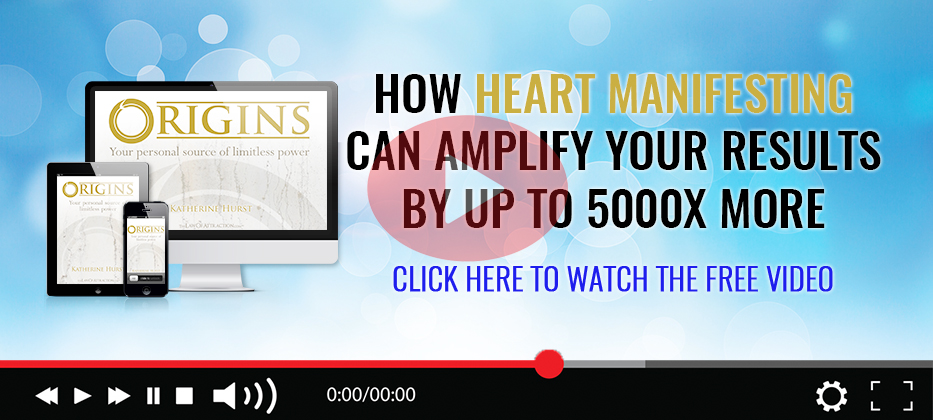Do you want to amplify your manifestation results exponentially? Go watch this video now…
The Secret Behind “Heart Manifesting” (Video)
How To Develop Critical Thinking Skills: 5 Strategies
You’ll often hear the term “critical thinking” without an appropriate explanation attached. For example, you might remember it as something you were assessed on when you were in school, or as something that you’ve been told certain people are naturally better at doing. The problem is not only that logic and critical thinking are often undescribed. They’re also frequently made to sound dry, dull, or of little practical relevance.
In truth, critical thinking skills are learned and sharpened over time, helping you to make better decisions, process information more effectively and express yourself more clearly. By honing your critical thinking abilities, you give yourself a boost in both your personal and professional lives.
So, what is critical thinking, precisely? And how can you become a better critical thinker, starting today? This straightforward guide will provide you with a great starting point, looking at the definition of critical thinking and working through five methods of improving it.
What Is Critical Thinking?
In the simplest terms, critical thinking is about carefully analyzing, processing and making sense of information. While it is often taught as part of a philosophy course (and has its roots in the work of Plato and Aristotle), critical thinking skills can be helpfully applied to any problem, subject area, question or concept.
It involves closely monitoring your own thoughts, paying heed to where they come from and how they follow from each other, and it requires a degree of open-mindedness.
In particular, good critical thinkers try their best to be neutral with respect to their own thoughts, spotting biases and prejudices and then correcting for them (we’ll look at biases in more depth later on).
What’s more, the latest research clearly shows that critical thinking comes with major benefits for all areas of reasoning. For example, someone with critical thinking can do the following:
- Ask relevant, clear questions with a precise and limited scope
- Methodically gather information and accurately assess it
- Reach well-supported conclusions, and evaluate them against counterevidence
- Display consistent awareness of the limits of their own competence, monitoring for things they don’t understand or struggle to accept
- Communicate with others in a productive, even-handed way that gets results, even when tackling complicated problems.
As is evident from the above, exercises in critical thinking are not only helpful for your career (e.g. tasks like conducting meetings and giving presentations). They also promote better relationships, enabling you to work through conflict in a faster, more self-aware way.
5 Ways To Improve Your Critical Thinking Skills
Now, as noted above, you’re not simply born with innate critical thinking skills. Yes, they’re easier to acquire for some people than others, but they can in principle be cultivated in anyone. This means that if you want to be a good critical reasoner, you need to remember that becoming a critical thinking is all about practice. Imagine it as similar to physical training! There are certain muscles you need to build over time.
The following five exercises will all help you with the critical thinking process. They’re all about making simple but powerful changes to your cognition and monitoring them over time.
In addition to using these techniques, remember that any kind of new learning is equally helpful for critical thinking. Every time you read about something new, join a class or tackle a challenging book, you’re becoming a sharper, smarter thinker.
1. Ask Basic Questions
It’s tempting to imagine that good critical thinkers ask erudite, convoluted questions when they’re trying to solve a problem. However, the truth is actually the opposite. The better you are at critical thinking, the more fundamental and clear your questions become. To enhance your questioning when problem-solving (and thereby improve your critical thinking abilities), make sure you break questions down.
Suppose you encounter a new problem, in work or life, and aren’t sure what to do. Start by asking the following:
- What information about this problem do you already have?
- How do you know the above information?
- What is your goal and what are you trying to discover, prove, disprove, support or criticize?
- What might you be overlooking?
These types of questions encourage you to get right to the heart of a problem, interrogating it for simple solutions before assuming complexity.
If it helps, try writing down the answers to the above four questions when faced with a problem, to help yourself remember your process as you go through it. You can use the same strategy to try and coax someone else through a problem when they bring it to you.
Once again, this shows how critical thinking is important from an interpersonal perspective, not just a cognitive perspective.
2. Be Aware Of Your Mental Process
People who assume they’re good critical thinkers often turn their analytical abilities outwards, arrogantly critiquing other people. However, being a genuinely skilled thinker involves a lot more self-reflection.
In particular, you want to keep an eye on your own mental process; where it started, what it looks like, and where it’s going. Our brains are incredibly impressive and can sort through information at an amazing rate, but this lightning-fast work can encourage us to ignore important factors.
Our brains use heuristics, sort of like cognitive shortcuts, to make quick inferences about what’s going on around us. In many cases, these heuristics yield reliable results and help us get on in the world. In other cases, they take the form of unreliable biases that lead us down the wrong path.
No matter how smart and thoughtful you are, if you want to be a good critical thinker you need to accept that you have such biases, and you need to learn to look out for them. Make a habit of asking yourself what you’re assuming and why, and checking for things like unhelpful stereotyping. Becoming more aware of your own biases is the first step to rewriting these parts of your thinking (though even the best critical thinker will never be entirely bias-free).
3. Adjust Your Perspective
As noted above, being more mindful of your own biases is a great help in critical thinking. However, it’s only step one in a gradual perspective shift.
One useful thing you can do is read the literature on biases and how they operate. For example, in the field of “CV studies”, researchers show how identical CVs can receive different evaluations depending on whether the name placed on the top sounds male or female, foreign or familiar, and so on.
Meanwhile, there are is all sorts of interesting work on how situational factors influence our seemingly staple character traits. For example, we make different decisions depending on things like hunger, the color of a room, whether we had to climb a flight of stairs, and so on.
Just the act of reading about these biases and heuristics can help to adjust your perspective. Another thing you can do to help is to deliberately expose your mind to other ways of thinking. Instead of sticking to your favored news sources, read a little more widely. Pick up books by authors outside your culture. Deliberately conduct empathy exercises that place you in an unfamiliar person’s shoes. All of these actions make you a better thinker.
4. Think In Reverse
Thinking in reverse is another fascinating and effective technique, especially when you’re stuck trying to puzzle through a difficult problem.
The basic idea is that you flip what you think you know on its head. So, if you think it’s pretty obvious that A cause B, ask yourself “But what if B caused A?”. This is the structure of the famous case of the chicken and the egg.
You initially think you’re sure that the chicken is the one who comes first because the egg needs to be laid by the chicken. However, once you consider that the chicken itself needed to originate somewhere, it’s no longer so clear.
Thinking in reverse won’t always get you an immediate solution to a problem. However, it jolts you out of perceiving the problem in the same old way, which is often all you need to get onto the road to success. Further, flipping the assumed direction of causation is a particularly useful trick in relationships, one that discourages blame.
For example, perhaps you thought you acted the way you did because of the way your partner has been speaking, but what if they think they’ve been speaking differently because of the way you’ve been acting?
5. Develop Foresight
While one of us are likely to become psychic anytime soon, we can get a lot better at predicting the impact of the choices we make (and the things we say). Consider that good foresight is an asset no matter what you’re trying to achieve. Whether you’re at a job interview, trying to market a business or attempting to date, you’ll be better able to make the right decisions if you can already see the consequences further down the line.
How do you develop your capacity for foresight, thereby improving your critical thinking more broadly? Make sure you take the time to look at all angles of a potential decision.
To take the example of looking for a place to situate your new business, don’t just go with your gut. Ask yourself questions like the following: what impression does this location give to visitors? How many competitors are there in the area? Will it be easy for employees to get here?
Making a pro and con list is another excellent way to boost your foresight, making you much better at predicting outcomes. And the more you do this, the less work you need to put into your attempted predictions each time.
You have the power to make it all happen. Improve your subconscious beliefs about yourself and the world so you can raise your frequency and send a better message to the Universe. Only then it will give you everything you’ve ever wanted whether it’s better relationships, unlimited prosperity, unbridled happiness – or ALL three.
I made this video for you, please watch it now to start manifesting your deepest desires:


